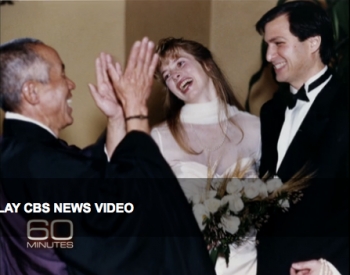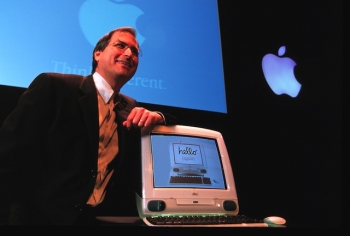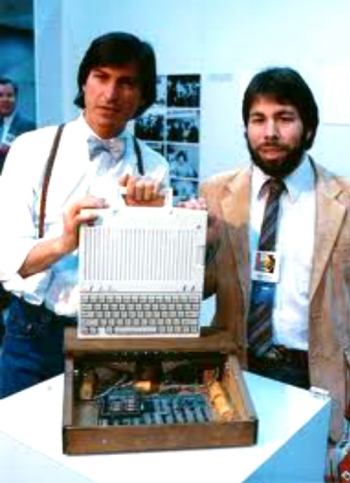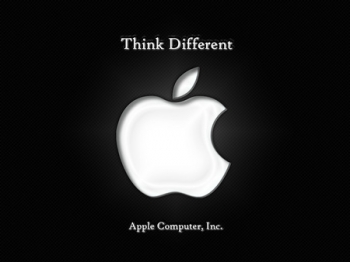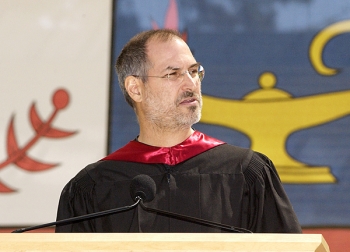“Steve Jobs” is not the name of a mere business tycoon—it is the title of the man behind the vast Apple Inc. empire, a name that signifies intellect, brilliance, and the sheer power of branding. Steve Jobs is so much more than a name . . . it is a brand that evokes one of the century’s most meticulous, unabashedly talented, and notoriously famous magnates. “Innovation distinguishes between a leader and a follower,” says The Innovation Secrets of Steve (2001). No doubt a leader, the icon has imprinted his breakthrough ideas, philosophies, and products on the world, leaving it faster, more innovative, more connected, . . . and his demise in 2011 was a shock to the fans of Apple all over the globe.
Born on 24 February 1955 in San Francisco, California, Steven Paul Jobs was put up for adoption and later taken in by Paul and Clara Jobs. Moving to Santa Clara County, which was transformed into the mighty Silicon Valley in the ’50s, it is obvious where Jobs got his engineering and computer know-how. Having enrolled at Reed College, a liberal arts college in Oregon, he lasted only a semester, dropping out to pursue an unconventional path laced with Eastern philosophy, the hippie culture, the Beatles, and LSD. Atari, a video-game maker, hired Jobs a few months later, and the savings from this job took him to India to “discover himself” as a great many others were doing at the time.
According to Indiatoday.in, Jobs was interested in the idea of nirvana and wanted to visit the country when the Kumbh Mela, a huge religious gathering that takes place every 12 years at the confluence of the Ganges, Yamuna, and Saraswati rivers, was being held. In Indiatoday’s interview with Daniel Kottke, Jobs’s college friend who accompanied him on the trip, Kottke shares a great deal about their travels, and especially about their visits to the Neem Karoli and Hariakhan Baba ashrams. ABCNews reports that Jobs returned to California already a Buddhist, clad in traditional Indian dress and with his head shaved and “a philosophy that may have shaped much of his corporate values.” However, Robert Thurman, a writer and professor of Buddhist Studies at Columbia University, who knew Jobs in the 1980s, argues that Jobs was not a practicing Buddhist. “But he was just as creative and generous and went outside the box in the way that he looked to Eastern mental discipline and the Zen vision, which is a compelling one,” he says (ABCNews).
According to Kottke, Jobs was indeed drawn to Zen, and after his return from India, “went to the zendo in Los Altos regularly.” In American biographer Walter Isaacson’s extensive biography, Jobs comments on his deep connection with his Zen master, Kobun Chino Otogawa Roshi (1938–2002): “I ended up spending as much time with him as I could. Zen has been a deep influence in my life ever since,” he reveals. In a Huffington Post blog, “The Zen of Steve Jobs: Right Livelihood,” Lama Surya Das identifies Jobs’s particular influences from Otogawa: “Roshi seems to have had an influence on Jobs in one notable respect—as a spiritual leader more interested in the great Zero (of sunyata, the void), than in oneness and other larger, more collective numbers. Kobun seemed focused too much on cold and clear emptiness, not enough on warm and empathic compassion, attitude-transforming loving-kindness practice. Too much head and not enough heart, a common critique of some Zen Buddhist lineages.” Over the years the connection between Jobs and Otogawa grew, and it was a milestone in their relationship when Otogawa presided over Jobs’s marriage to Laurene Powell in 1991. Lama Surya Das goes further into Jobs’s spiritual inclinations and how his work ethic echoed Buddhism in the Huffington Post article.
